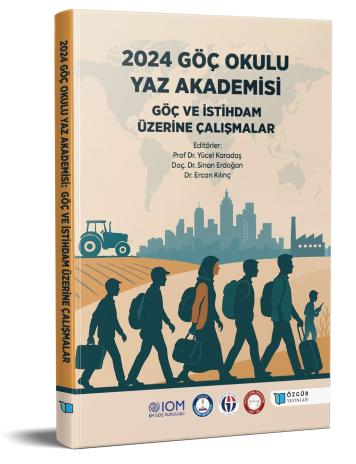
Assessment of Migration, Digitalisation, Technology and Employment in European Union Countries
Chapter from the book:
Karadaş,
Y.
&
Erdoğan,
S.
&
Kılınç,
E.
(eds.)
2025.
2024 Migration School Summer Academy -Studies on Migration and Employment.
Synopsis
Digitalisation and the digital economy support economic growth and social transformation by enabling economic activities, commercial transactions and professional interactions to be carried out via digital platforms. This study presents an overview of the digital transformation, migration movements and changes in the labour force structure within the European Union. EU countries are facing simultaneous structural changes due to the proliferation of digital technologies, an ageing population structure and increasing migration flows. This study analyses how three key areas (migration, digitalisation and employment) intersect. Digital transformation in the EU is examined alongside migration movements and changes in the labour force structure. Digital technologies are reshaping the labour force, facilitating the integration of migrants and contributing to the efficient use of economic resources. Consequently, high-tech exports and digitalisation are of central importance in enhancing the sustainable economic growth and global competitiveness of EU countries.

